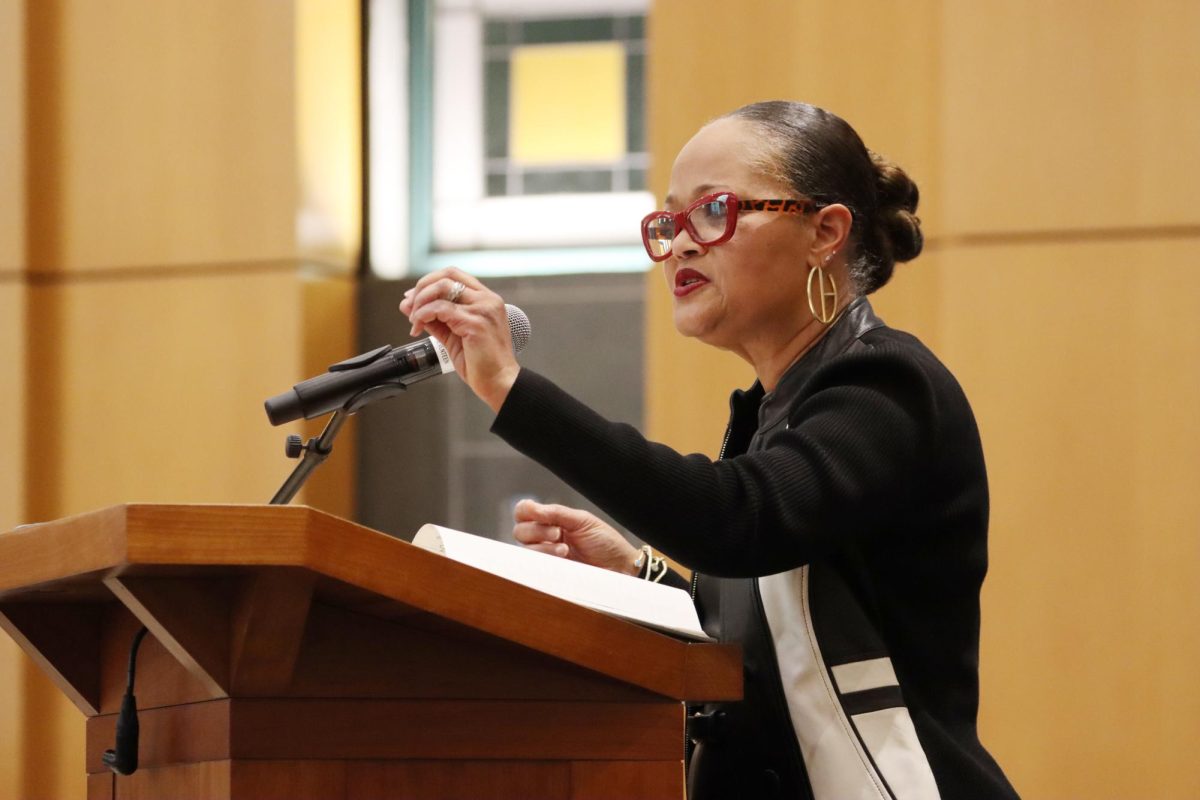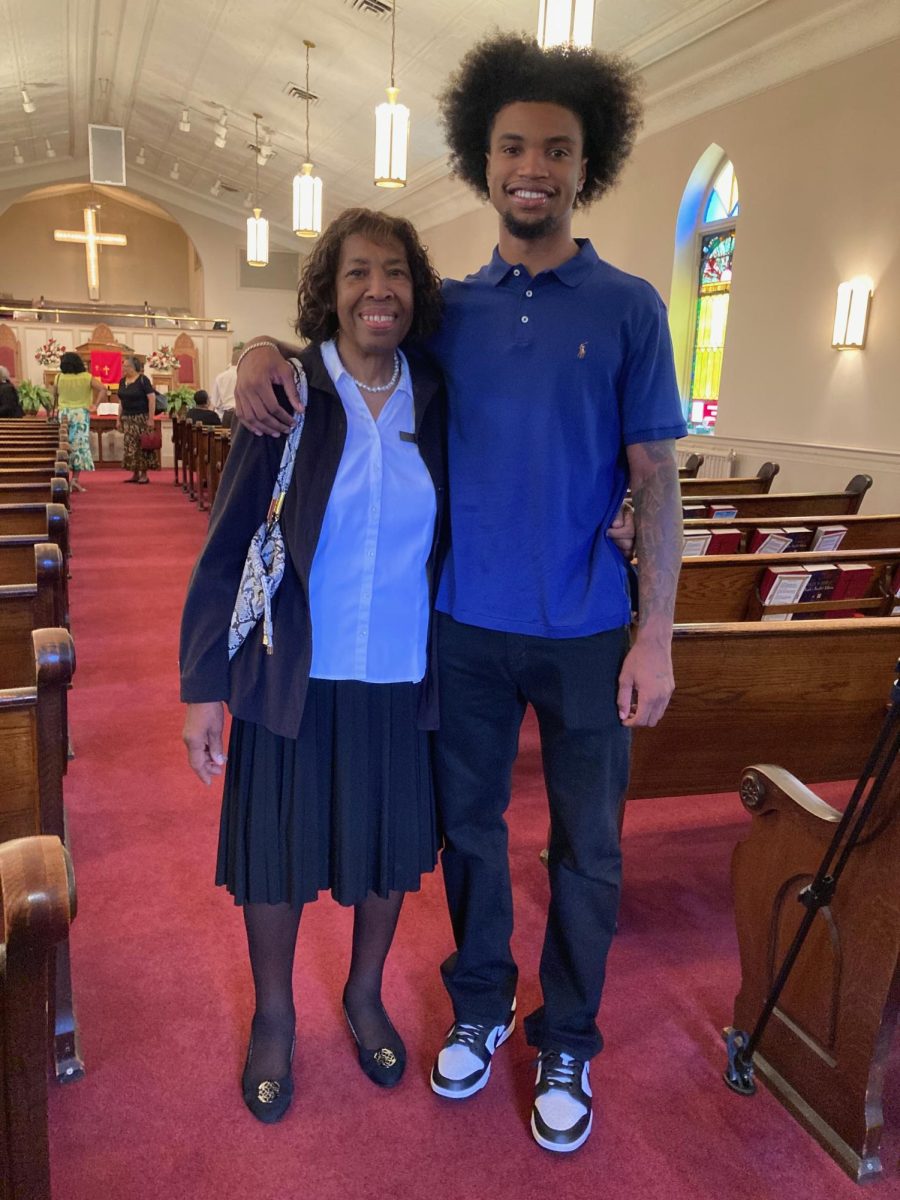Melanie Littlejohn, CEO and president of the Central New York Community Foundation, took the stage at Le Moyne College’s Dr. King Convocation last Wednesday, her voice steady but charged with emotion. “Still trying to catch my breath,” she confessed, as if the weight of the moment had momentarily taken hold. But as she spoke, her message was undeniable: love is not just an emotion—it is a force, a revolution, a power that demands action.
“Love isn’t easy,” she declared. “If I don’t focus on love and healing, I should pack it up.” Littlejohn acknowledged the discomfort that often surrounds discussions of love. “People think… eww,” she quipped. But in a time of fear, division, and injustice, “we need love” more than ever — not as a fleeting sentiment, but as a deliberate, unyielding force for change.
She spoke directly to the turbulence of our present era, moments steeped in uncertainty and eerily reminiscent of past struggles. Addressing the recent political rollback of Diversity, Equity, and Inclusion (DEI) initiatives, Littlejohn’s voice swelled with
conviction. “I was angry. Mad. Disappointed. Scared to turn on the television,” she admitted.
She called DEI the new “bogeyman,” a distraction from the deeper injustices at play. But she refused to be paralyzed by fear. “This is a moment. A moment we’ve been in before,” she declared. And then she posed the question that hung heavy in the air: “What would Martin do?”
The answer was resolute. “He would lead in love. The only way to see change.” But love, she reminded us, is not passive. It does not whisper; it roars. “Love requests we have hard conversations,” she asserted. “Love ain’t easy, but it’s worth it.” It is a choice, a responsibility, a radical act in the face of oppression.
Littlejohn dismantled the notion that DEI is exclusionary, instead reframing it as an essential foundation for true equity. “DEI includes ramps, sidewalks, subtitles, non-smoking areas, public accessible transportation, belt extenders on airplanes,” she listed. “We’re wrong to think it doesn’t include everyone in this room.” Equity does not divide—it builds bridges. It is not about taking away, but about ensuring that all voices are heard, all people are seen, all lives are valued.
But her most impassioned plea came in her call to the young, and to those who bear the responsibility of guiding them. As a grandmother—’Mimi,’ she understands the weight of this duty personally. “We can’t let them down,” she implored. “We can’t let them see hate as the guiding principle.” To Littlejohn, investing in the next generation isn’t just a moral obligation; it is a sacred duty.
“We owe Dr. King,” she reminded us. “He shed blood.” His sacrifice demands more from us than complacency—it demands action, courage, and an unwavering commitment to love.
Melanie Littlejohn’s message was not just an address; it was a battle cry. This moment, this fight, this path forward—it all hinges on love. Not love as an ideal, but love as an unbreakable, relentless power.
The road is difficult. The work is grueling. But the price of inaction is far too high. If we are to honor those who fought before us, if we are to build a future worth believing in, then we must—through all the discomfort, all the fear, all the resistance—love our way forward. And we must do it now.



